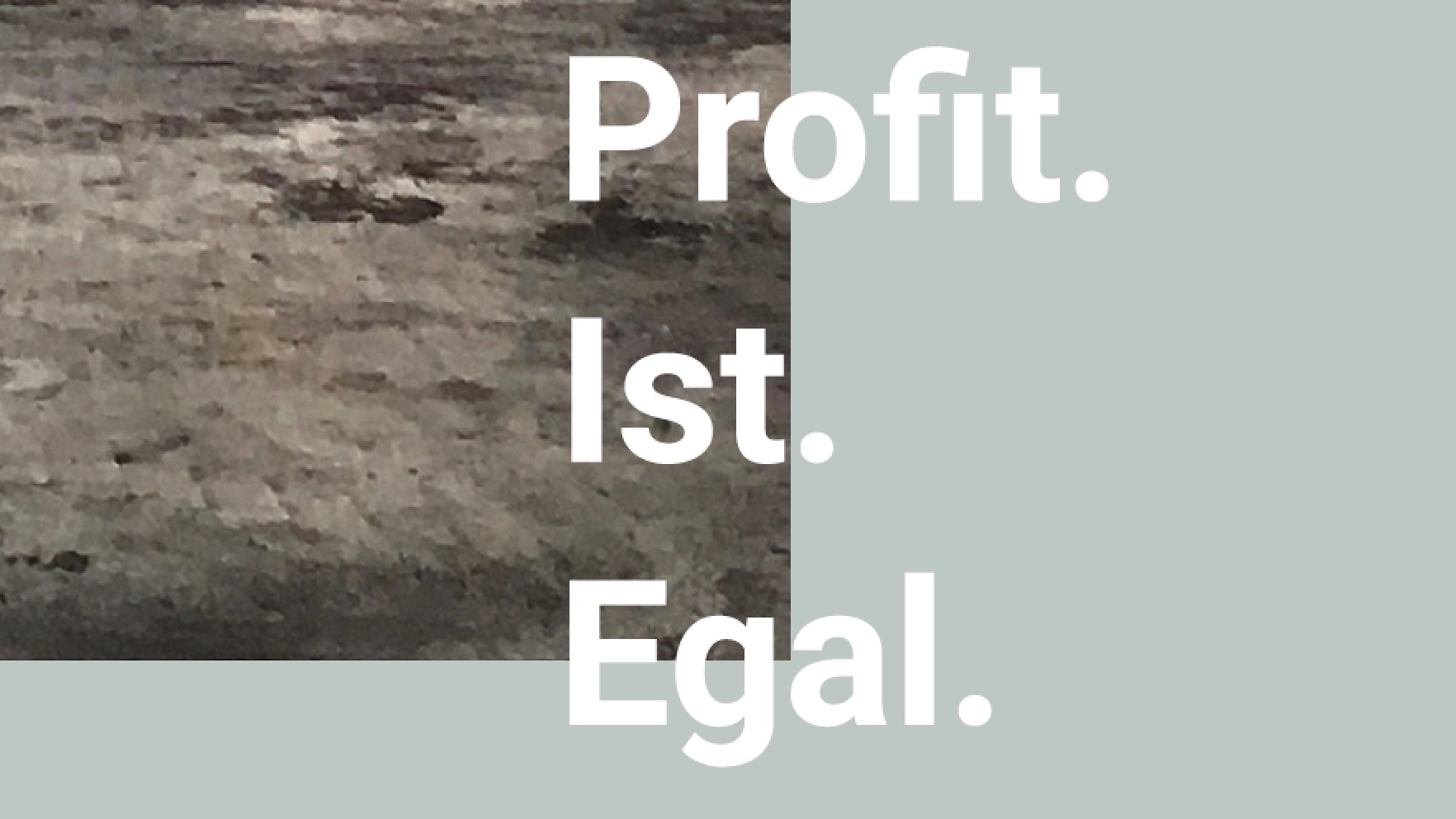EX-EMBASSY ist eine interdisziplinäre Ausstellungs- und Textreihe rund um die 1975 von der Deutschen Demokratischen Republik (DDR) für Australien fertig gestellte Botschaft in Pankow, Berlin. Das zurzeit umstrittene Gebäude ist das materielles Überbleibsel eines Versuchs, die Kluft des Kalten Krieges zwischen einem kapitalistischen Siedlerstaat und einem sozialistischen Staat zu überbrücken. Über den Handelspragmatismus hinaus lassen sich weitere politische Anliegen und Gegenprojekte durch und über den Rahmen des modernistischen Gebäudes hinaus verfolgen. Für Ex-Embassy antworten fünf Künstler und fünf Schriftsteller auf diesen und andere Zusammenhänge (weitere Informationen: ex-embassy.com/de).
Rechtswissenschaftlerin Sarah Keenans Text für Ex-Embassy, 'Raum und subversives Eigentum', folgt der Frage, wie Grundbesitz als etwas verstanden werden kann, dass die Idee von Zugehörigkeit „aufrechterhält“, etwas, das nach wie vor definiert, was (oder wer) irgendwo hingehört (oder nicht). Keenan argumentiert, dass Eigentum „formbar“ ist: in der richtigen Art und Weise angewendet, ermöglicht es, normative Systeme von In- und Exklusion zu unterwandern.
Parallel zur Ausstellung hat sich eine Initiative gebildet, um die ehemalige Botschaft dem Immobilienmarkt zu entziehen und als langfristigen Kultur- und Studiokomplex zu sichern. In Anbetracht dieser Tatsache und ausgehend von Keenans These wird in einer Veranstaltung bei ACUD MACHT NEU folgende Frage diskutiert: In Berlin kämpfen immer mehr Menschen um Raum, um zu existieren, zu leben und zu arbeiten. Von Erbbaurecht bis zum ‚Enteignungsgesetz‘ Artikel 15, von Genossenschaften bis zum Miethäusersyndikat: Eigentum wird „formbar“ gemacht. Jedoch: erhebliche Mengen an Zeit, Fähigkeiten, Kontakten und Wissen über Vorschriften und Normen – sprich: Privilegien, die an sich durch der globalen Geschichte des Eigentums entstanden – werden benötigt, um langlebige alternative Eigentumsstrukturen zu etablieren. Welche Auswirkungen hat das und wie können alternative Eigentumsstrukturen radikal offengehalten werden? Können Künstler*innen hier eine (nicht-gentrifizierende) Rolle spielen, und wenn ja, wie?
Als Abschluss der Ausstellung ist diese Paneldiskussion die finale Veranstaltung von EX-EMBASSY, und findet im Rahmen des vom Atelierhaus Australische Botschaft Ost organisierte Festival 'Kunstherbst in der Botschaft' statt.
Referent*innen: Jennifer Bennett (artist, Kunstblock), Florian Feigl (Atelierhaus Australische Botschaft Ost, DE), Simon Fronemann (Seume14), Sarah Keenan (Rechtswissenschaftlerin, AU/UK), Bafta Sarbo (Initiative Schwarze Menschen im Deutschland). Moderation: Sonja Hornung (AU/DE)
Sprache: Deutsch und Englisch
EX-EMBASSY wurde im Rahmen des Project Space Festival Berlin von dem Projektraum x-embassy als Teil von Atelierhaus Australische Botschat (Ost) veranstaltet. Dieses Projekt wurde von der australischen Regierung durch das Förder- und Beratungsgremium des Australia Council for the Arts und von der Rosa Luxemburg Stiftung durch den Verein Helle Panke - Rosa-Luxemburg-Stiftung Berlin unterstützt.
Bild: Kunstblock and beyond
English
DISCUSSION PANEL
Subversive Property? Structures of belonging in a gentrifying city
EX-EMBASSY is an interdisciplinary exhibition and text series situated around the embassy completed in 1975 by the German Democratic Republic (GDR) for Australia in Pankow, Berlin. Now contested property, the site is a material remnant of an attempt to bridge the Cold War divide between a capitalist settler colony and a socialist state. Beyond trade pragmatism, other political desires and counter-projects can be traced running through and beyond the modernist building's frame. For Ex-Embassy, five artists and five writers respond to these and other contexts (further information: ex-embassy.com/en).
Legal theorist Sarah Keenan’s text for EX-EMBASSY, 'Space and Subversive Property', thinks through how property might be understood as something that 'holds up' belonging, designating what (or who) is 'in place' (or not). Keenan argues that property is ‘malleable’ — capable of being or becoming subversive to normative systems of inclusion and exclusion.
Parallel to the exhibition, an initiative has formed to withdraw the former embassy from the real estate market and secure it as a long-term cultural site and studio complex. In light of this fact, and drawing on Keenan’s argument, offsite at ACUD MACHT NEU, a panel discusses the following questions: In Berlin, increasingly, many inhabitants find themselves fighting for space to exist, to live and to work. New and old structures of collective property are being reformulated and applied, from ‘leasehold rights’ (Erbbaurrecht) to the ‘expropriation law’ Article 15, from co-ops to the ‘Mietshäusersyndikat’: property ‘made malleable’. Yet enormous amounts of time, skill, contacts and literacy in existing rules and norms — in short, privileges that are themselves structured through the global history of the property form — are required in order to establish durable alternative property structures. What implications does this have? How to keep alternative property structures radically open? Can artists play a (non-gentrifiying) role, and if yes, then how?
Following the exhibition, this discussion is the final event of EX-EMBASSY, and takes part in the framework of Atelierhaus Australische Botschaft Ost's festival 'Kunstherbst in der Botschaft'.
Contributors: Jennifer Bennett (Künstlerin, Kunstblock) Florian Feigl (Atelierhaus Australische Botschaft Ost, DE) Simon Fronemann (Seume14), Sarah Keenan (legal scholar, AU/UK), Bafta Sarbo (Initiative Schwarze Menschen im Deutschland). Moderation: Sonja Hornung (AU/DE)
In English and German
EX-EMBASSY opened as part of the Project Space Festival Berlin and is hosted by the project space x-embassy as part of Atelierhaus Australische Botschaft (Ost). This project has been assisted by the Australian Government through the Australia Council for the Arts, its arts funding and advisory body, and by the Rosa Luxemburg Foundation through the association Helle Panke - Rosa-Luxemburg-Stiftung Berlin.
Image: Kunstblock and beyond
